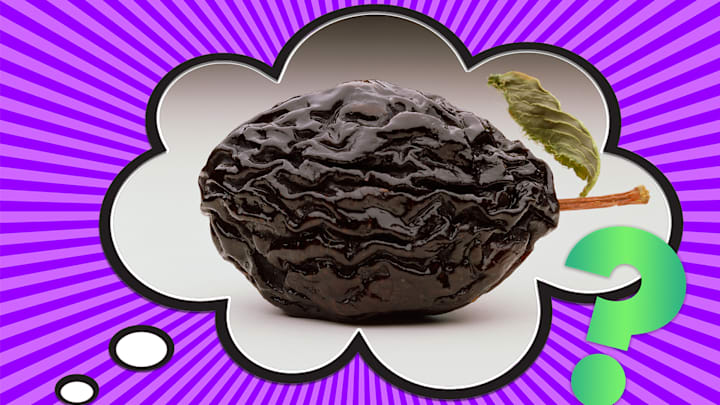Around in the world, prunes occupy the head of the table. In the United States, they’re often the butt of jokes. The shiny, sweet dried fruits are both exploited and ridiculed for their laxative properties. But do they really make you poop?
Are prunes a laxative?
Conventional wisdom and scores of older folks insist that eating prunes will hasten the excretory process. Meanwhile, the European Union says they won’t. In a 2010 ruling, the European Food Safety Authority decreed it was dishonest to sell prunes as laxatives. The ruling, which cited “insufficient evidence” of prunes’ poop-moving properties, was met with incredulity and derision.
One miffed Parliamentarian challenged the ruling. “Most of our constituents do not require a scientific test,” Sir Graham Watson said. Watson then challenged the commissioner of health and consumer policy to a prune-eating contest, inviting the man to “see for himself.”
There actually is a good amount of scientific evidence to prove the power of prunes. On his Compound Chemistry blog, chemist Andy Brunning noted that studies in 2008 and 2011 concluded that prunes do indeed make effective laxatives.
Why do prunes make people poop?
Like many fruits, prunes are high in insoluble fiber, which adds bulk to food in the process of digestion while also helping it pass through the system faster. Prunes also contain sorbitol, a sugar alcohol that’s used to sweeten things like chewing gum. It appears naturally in prunes, though it’s often used as an artificial sweetener in “sugar free” chewing gum. Sorbitol is a laxative, which is why you should be mindful of how much sugar-free gum you chew.
The sorbitol isn’t working alone though, Brunning says. Prunes are naturally laced with neochlorogenic and chlorogenic acids—the same chemicals that can help send you to the bathroom after finishing your morning coffee.
So yes, prunes can ease the passage of certain personal parcels. But they’re also delicious—a fact often overshadowed by their functionality. That’s why, in 2000, the prune lobby launched a massive rebranding effort. Hit up the dried-fruit section of your supermarket and you will likely find “dried plums” instead of prunes.
“Ninety percent of consumers told us that they’d be more likely to enjoy the fruit if it were called a dried plum instead of a prune,” the newly renamed California Dried Plum Board said in a press release titled “You Won’t Have Prunes to Kick Around Anymore.”
Under any name, “dried plums” still have the power to move you—no matter what the European Union says.
Have you got a Big Question you’d like us to answer? If so, let us know by emailing us at bigquestions@mentalfloss.com.
A version of this story originally ran in 2018; it has been updated for 2023.
